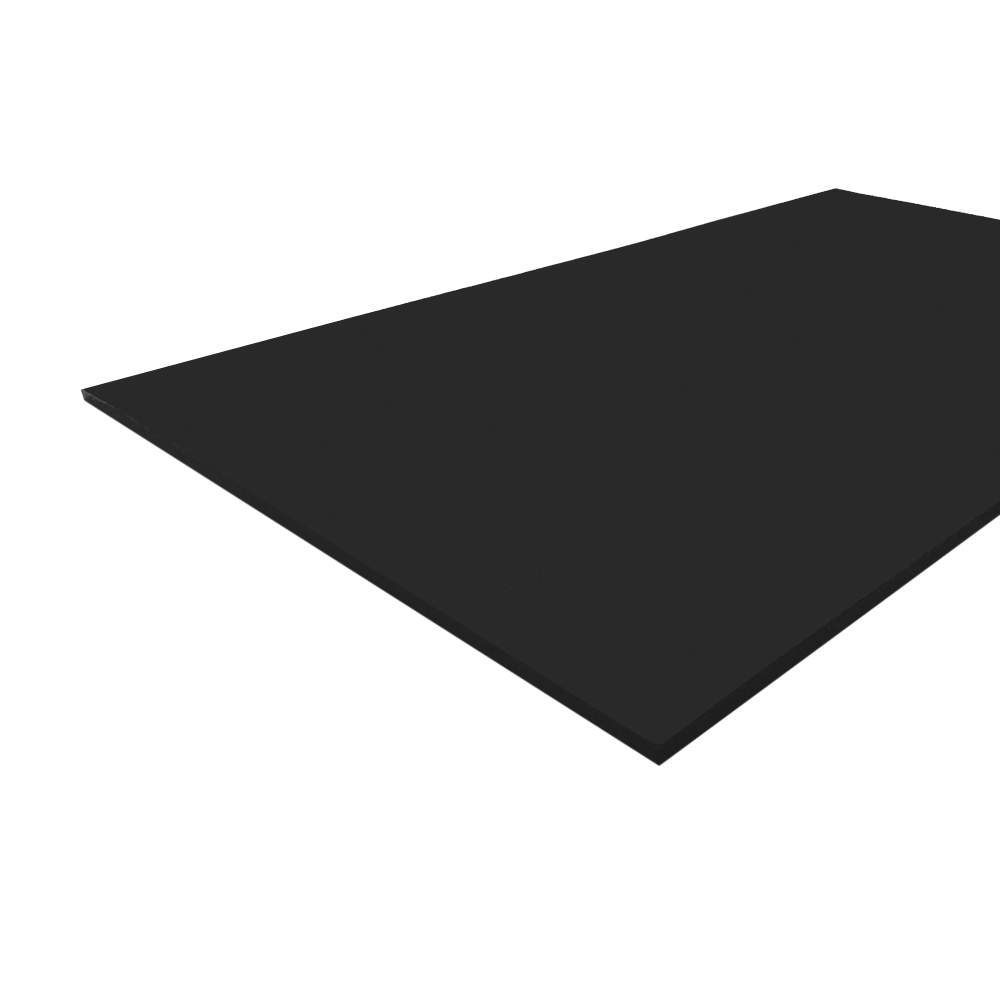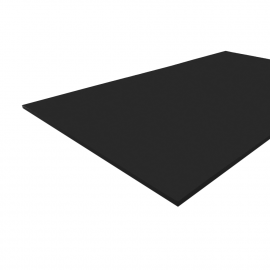EVA Sheet 350 Black 3mm
Your shopping cart is empty!
Item specifics
- 3mm Thickness (mm) (+/- 0.5mm)
- 350kg/m³ Density (kg/m³) (JIS K6767-1976)
- Black Colour
- 890mm x 795mm Sheet Dimensions (LxW) (mm) (+/- 5mm)
Product Description
Our EVA sheets are manufactured specifically for use in orthotic manufacture. They have been manufactured with high quality materials and low amounts of filler. This leads to incredibly good results under load. LaserCAM Orthotics recommends purchasing this EVA for use with their CADCAM system for foot orthotic manufacture.
Our EVA sheets are incredibly high quality. They have low amounts of filler and excellent compression set (%).
What is EVA?
Ethylene vinyl acetate (EVA), also known as polyethylene vinyl acetate (PEVA), is the copolymer of ethylene (C²H⁴) and vinyl acetate (C⁴H⁶O²). Ethylene is a colourless and flammable organic hydrocarbon widely used in the chemical industry for the production of polyethylene, which is the most widely used plastic in the world. Vinyl acetate is an organic liquid monomer. When polymerised a ‘rubber-like’ EVA copolymer is produced with excellent clarity, gloss, low-temperature toughness, stress-crack resistance, resistance to UV radiation and waterproof properties.
Why is our EVA high quality?
We manufacture EVA with low amounts of filler and excellent compression set (%). We undertake standardised testing on our samples to ensure that we meet the rigorous standards of our customers that rely on our products to manufacture high-grade and long lasting products.
What are fillers?
The process of manufacture also allows the parameters of the material to be altered by the use of additives. Simple additives may be added to vary aesthetic properties such as colour, however other additives can be added that have impacts on key material properties. Manufacturing additives that lower the cost of production are commonly referred to as ‘fillers’. These fillers may act to increase properties such as density, while having negative impacts on quantifiable performance indicators such as compression set (%), tear strength (kN/m) and tensile strength (kPa). The degree of cross-linking of copolymers within EVA determines the fineness of the cellular structure, with higher levels of cross linking and consistencies in cellular sizes giving rise to better mechanical properties. Fillers generally decrease the degree of cross-linking and consistency in cellular size and structure of the EVA. This is why when tested, different samples of EVA that may be the same density or hardness can have drastically different mechanical properties. Filler content may be analysed by burning away EVA copolymer at temperatures exceeding 500°C. Residual ash content may then be analysed to quantify % ash which allows identification of total filler %.
What is compression set (%)?
Compression set (%) analysis is commonly undertaken on a variety of foam and rubber materials to determine the ability of a material to maintain elastic properties after prolonged compressive stress. The test allows the quantification of permanent deformation of a material expressed as a percentage. Compression set (%) testing is a particularly relevant performance variable for the orthotic manufacturing industry as EVA orthoses undergo constant in-shod pressure/release states.
Can I view your EVA property data?
Of course. Simply click the technical specifications tab to download our latest data sheet.


